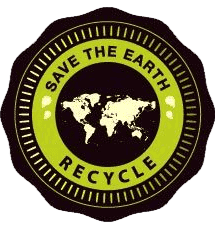Hazardous waste disposal is a tricky situation as there are a lot of restrictions around this issue.
Almost every household in the United States contains some kind of hazardous waste that needs to be disposed of. Common items like pesticides, fertilizers, household cleaning products, and motor oil are considered to be forms of hazardous waste.
Hazardous waste is chemicals that are prohibited by the public works from being disposed of in the municipal waste system. The same rules apply to most dumpster rentals.
This is why disposing hazardous waste can be such a tricky subject, but we have created this quick guide to help you out.
What is Household Hazardous Waste?
Most households in the US will have some kind of hazardous waste that they need to dispose of. These are chemicals that cannot be thrown out with the rest of the trash due to the risks they pose to human health and the environment.
There are a lot of people that have to handle your trash after you have taken it out, from landfill workers to those who work in recycling facilities.
Chemicals that can be found in common household items can pose a huge safety concern, which is why they need to be disposed of separately.
Common household hazardous items include:
- Paint and paint cans even if they are empty with residential residue
- Batteries – while small alkaline batteries can be thrown in the trash sometimes, this is only in small quantities
- Kitchen and bathroom cleaners
- Bleach
- Any kind of automatic fluid
- Motor oil
- Medication
- Pool chemicals used for cleaning
- Lawn or garden fertilizers
- Varnishes and stains
- Bug killers and pest sprays
While these are common household products, they are considered to be hazardous wastes due to the chemicals they have within them. This is why the disposal of them can be tricky and requires more consideration than other household trash.
It is not only important to ensure that household hazardous waste does not end up in the public works trash collections because of the risk to human health, there are also environmental risks to consider.
Going through the correct haz waste disposal methods will prevent these chemicals from going into sewers, storm drains, and illegal dumpsites.
These chemicals can also easily end up in the underground water we drink, as well as polluting rivers, lakes and destroying wildlife.
How Serious is Household Hazardous Waste?
You may think that throwing away a small amount of kitchen cleaner or motor oil into the trash will not have that much of an impact on the environment, but you will be mistaken.
Hazardous materials like this can cause a lot of damage, even in small quantities.
If everyone has the same mindset when it comes to hazardous waste management, we will quickly end up with gallons of motor oil or other harmful chemicals in places that it should not be.
Following the correct disposal methods for hazardous waste will reduce your environmental impact and keep others safe.
The Correct Methods of Hazardous Waste Disposal
As you cannot throw hazardous materials in the trash, you might find that it is difficult to dispose of these kinds of materials. However, this does not have to be the case.
You must contact your local waste management to see what their stance of hazardous waste disposal is.
Some locations will have set days on which they offer hazardous waste disposal collections. For example, in the District of Columbia, these days take place throughout the year.
For residents in the District of Columbia, hazardous waste disposal collections take place every Saturday between 8 am and 3 pm. In the District of Columbia, it is forbidden to dispose of hazardous waste in the trash.
This is why the authorities in the District of Columbia offer hazardous waste recycling collections throughout the year.
Make sure to contact your local authority to see what collection days they offer.
For those in Washington DC 20009 phone area, contact us for free information regarding hazardous waste management.
Other options for the disposal of certain kinds of hazardous waste are available.
For example, there are some recycling collections available for motor oil, as this can be recycled at most local oil change centers. Similarly, lead-acid batteries that are used in vehicles can commonly be recycled at the place of purchase or other auto part stores.
There are a lot of options when it comes to hazardous waste disposal, and recycling these chemicals is becoming as common as recycling coffee grounds in many cities.
As always, speak to your local authorities for more information on hazardous item disposal.
Those in DC, contact us for more information about hazardous waste management in this area. DC contact can also be done by entering your zip code in the search box.
